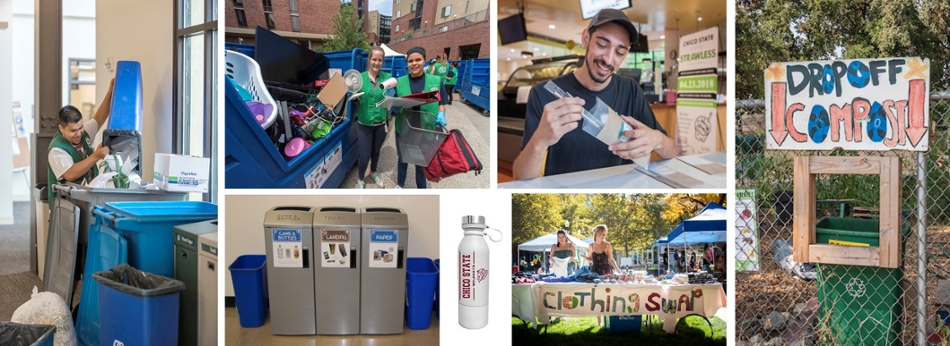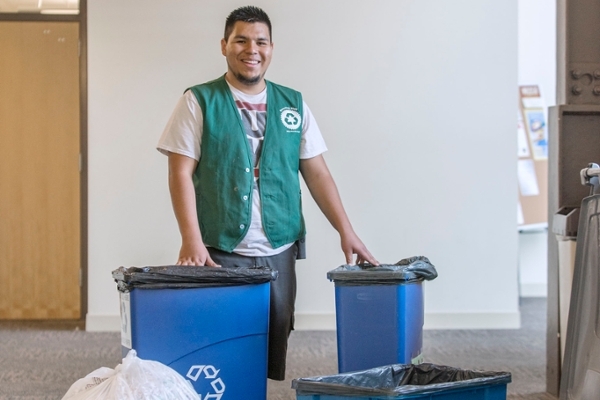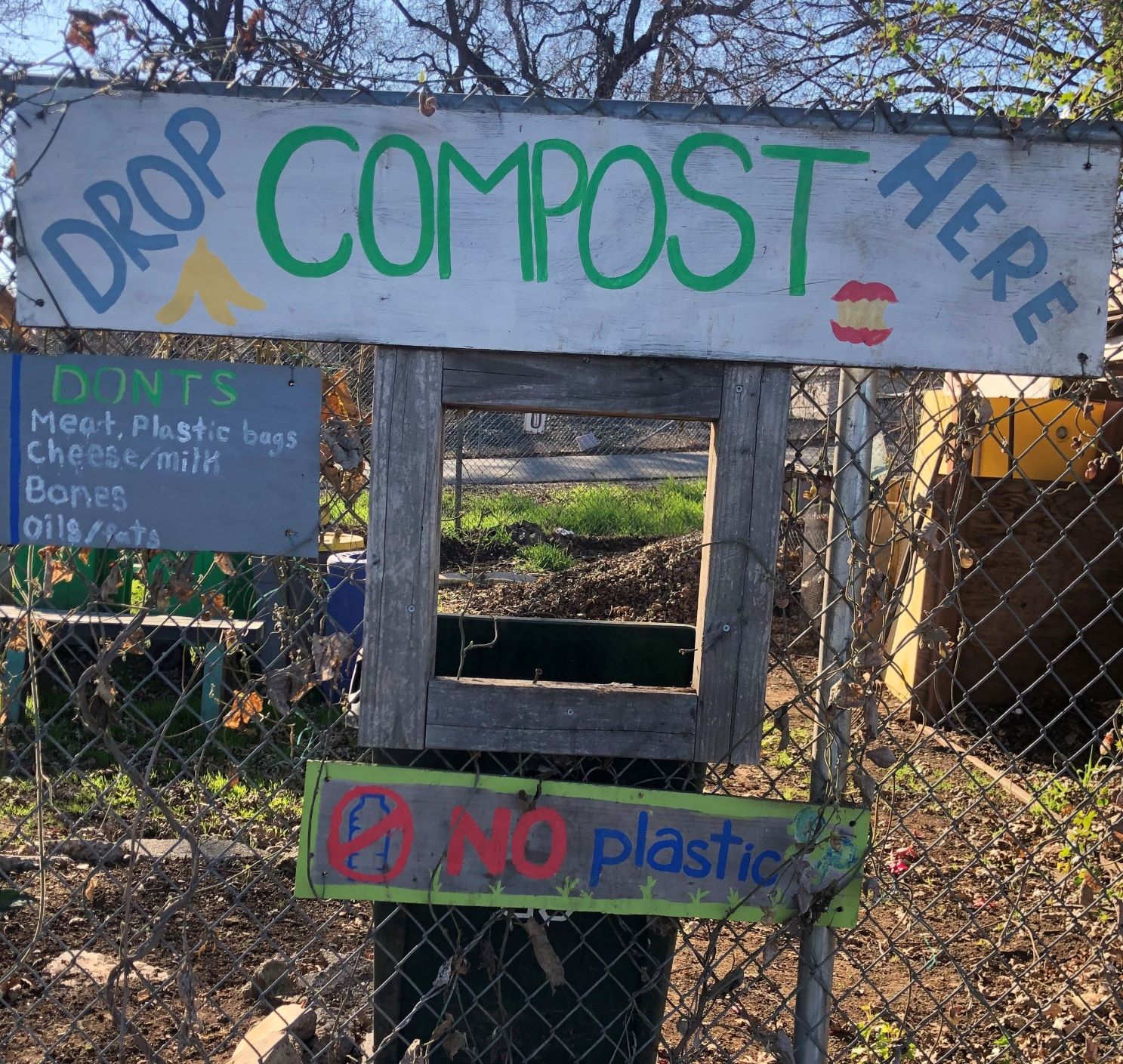
Zero Waste at Chico State

What is Zero Waste
Zero waste mimics natural cycles where materials are not simply discarded but recovered for beneficial use. The internationally accepted definition of zero waste states that at least 90% of total solid waste generated, measured by weight, is diverted from landfills through reduction, redesign, reuse, recycling, and composting. To reach true zero waste, emphasis must be placed on eliminating waste before it occurs rather than relying on recycling and composting.
We must still ensure that items that cannot be designed out or reused are recycled or composted correctly. Below you will find resources to help you make the best zero waste decisions while on campus, out in the community, and at home.
"If it can't be reduced, reused, repaired, rebuilt, refurbished, refinished, resold, recycled, or composted then it should be restricted, redesigned, or removed from production." ~Pete Seeger
Campus Goals & Requirements
There are several state mandated recycling and composting requirements as well as adopted zero waste goals within the California State University (CSU) system:
- AB 1826(opens in new window) requires collection and composting of yard trimmings and food scraps from all State and business facilities
- AB 341(opens in new window) requires recycling collections at all State and business locations
- The CSU Sustainability Policy (PDF) states that all campuses shall divert 80% of solid waste from landfill by 2020 and move toward zero waste beyond that
- The CSU Single-Use Plastics Policy (PDF) requires the elimination of single-use plastic water bottles, straws, and bags as well as all Styrofoam
- In addition, the Associated Students have passed a number of policies and referendums related to zero waste(opens in new window)



